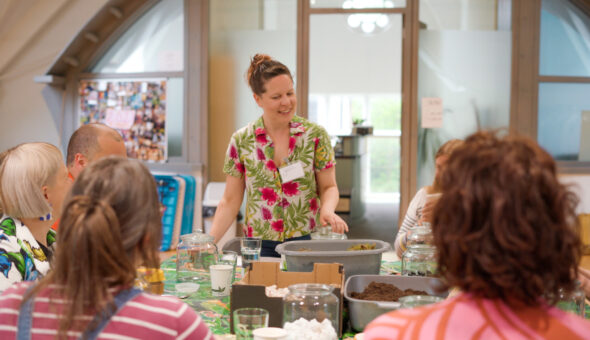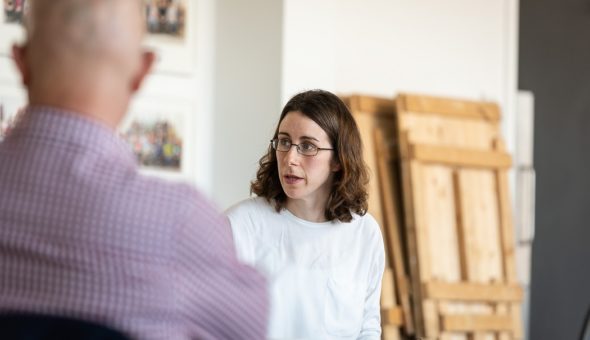In our last ChallengeCPD@Bath blog, we explored how we should reframe our approach to our professional development programmes, putting the learner and their learning needs first. In response to this, we thought we would give it a go and experiment with what this would mean in practice.
Our approach
To put the learner first we decided to involve researchers in our professional development programme like never before. Our approach involved piloting co-produced training, developing tools to assess and surface existing skills, knowledge and behaviours, and revisiting key researchers to evaluate the impact of our (and other) interventions on their broader professional development and career aspirations.
Self-assessment toolkit
Professional development isn’t necessarily about new knowledge or behaviours but helping researchers become conscious of what they already know. Working with researchers we created a toolkit made up of exercises that help researchers realise their existing skills, knowledge and expertise that are relevant, and can be used in their public engagement practice that they may have developed in their personal as well as their professional lives. These activities are also useful to identify any gaps that researchers can use as a guide for further professional development activities.
Download the Public Engagement Skills Self-Assessment Toolkit
Co-produced training
Like most across the sector, we’ve experienced the issue of offering training in response to demand and then only a limited number of people taking it up. We develop all our training with informal input from participants but what would happen if we took the approach of co-producing training with researchers, collaborating with them in the design and delivery of training services? We tested this out with two programmes during ChallengeCPD@Bath:
Choose Your Own Training
In our experience offering researchers funding to carry out activities to engage public groups with their research is a great mobiliser, so we took this approach with professional development and launched a fund for researchers to develop training activities. We put together a funding call for researchers to make suggestions as to what format and content they feel they need and offer to work with them to make them a reality. Projects we funded through the scheme included training on design thinking, social media, data visualisation, press and broadcast media and a leadership fellow programme.
Check out the Choose Your Own Training programme report for more details of what we did.
Public engagement module for doctoral students
Our professional development programme has involved training specifically for doctoral students with much of the content focused on covering the key principles of public engagement and public engagement skills development. We decided to co-produce a new module for doctoral students with doctoral students from three departments, Physics, Pharmacy & Pharmacology, and the Milner Centre for Evolution. Taking an iterative approach, we worked to identify core content and preferred formats resulting in a module that involved a combination of workshops, group work, self-directed activities, e-learning and practical delivery.
Check out the Co-Developing a Public Engagement with Research Module for Doctoral Students report for more details of what we did.
Our experience of co-production
With our co-produced schemes, we took the mantra of “putting the learner first” to an extreme. Both schemes suffered from low uptake and co-produced training suggested through the funding scheme ended up being more traditional forms of training in terms of both format and content, suggesting that there isn’t a huge untapped demand for creative approaches to training or professional development and we, as the Public Engagement Unit, should lead and innovate in the provision of the offer.
It is always hard to assess why something does not work. It could be a genuine uncertainty by researchers of what to propose given the perception that we have more developed thinking on both training and public engagement. Also, it would seem the poorly developed culture toward professional development at universities and the marginal nature of public engagement combined to exacerbate each other, resulting in the offer of co-production of training not being taken up by colleagues at the University.
We listen carefully to our academic colleagues to inform everything we do and will continue to do so, particularly when there’s a deafening silence!
With these schemes, we wanted to challenge the approach that learners are deficient in their knowledge and skills prevalent in training. We assumed that putting the learner at the heart of our professional development offer would improve not only the quality of the provision but the uptake. However, in practice, it’s not that straightforward. There is a spectrum between interventions that we devise and deliver and full co-production of training. These interventions deliberately took us to one of that spectrum. Like public engagement itself, co-production is often lauded as a gold standard, but in reality, it's often about compromise, meeting halfway with the audience.
Experimenting with putting the learner first has helped us realise not all learners will want the same level of involvement and that’s ok.
Helen Featherstone is Head of Public Engagement at the University of Bath.
Respond



